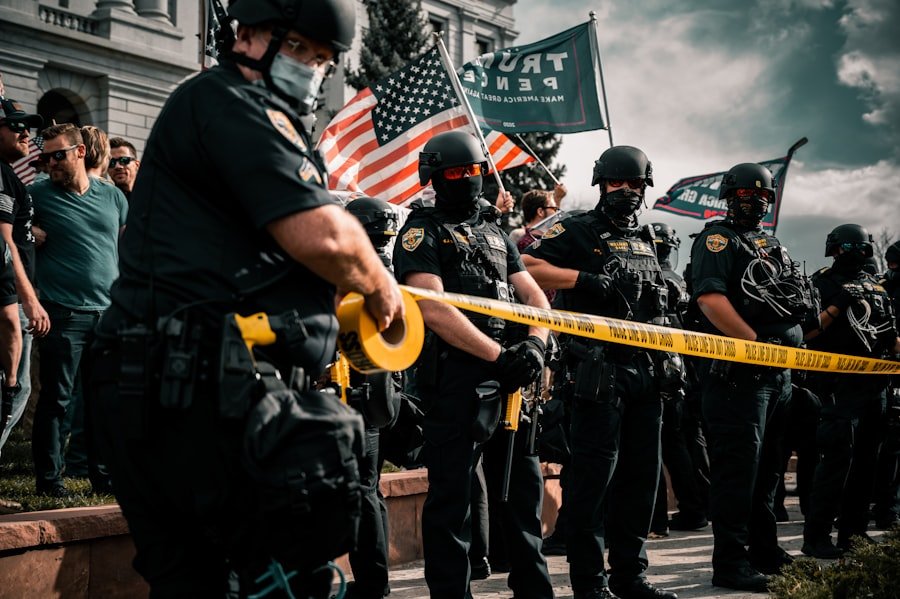The 2020 Republican presidential primary has presented an unusual scenario, with multiple candidates challenging incumbent President Donald Trump for the party’s nomination. This situation is rare in modern American politics, as sitting presidents typically face minimal opposition from within their own party when seeking re-nomination. The emergence of primary challengers reflects significant divisions within the Republican Party and the broader conservative movement.
While President Trump maintains strong support among his base, a notable faction within the party has expressed dissatisfaction with his leadership style, policy decisions, and presidential conduct. This discontent has created an opportunity for alternative Republican candidates to present different visions for the party and the country. The primary challenge to President Trump is not only indicative of internal party dynamics but also represents a response to broader shifts in American politics and society.
The situation has the potential to significantly influence the 2020 election landscape and the future direction of the Republican Party. An examination of the notable Republicans challenging Trump, their backgrounds, potential impact, and the incumbent’s response to their candidacies provides insight into the complexities of this unique political scenario.
Key Takeaways
- There are several notable Republicans challenging Trump in the primary election.
- Some of Trump’s primary opponents have strong political backgrounds and experience.
- Trump’s primary opponents could potentially impact the dynamics of the primary race.
- Trump has responded to his primary challengers with a mix of confidence and criticism.
- The primary race dynamics are complex and could have significant implications for the future of Trump’s presidency.
Notable Republicans Challenging Trump
Challengers Emerge
Several notable Republicans have stepped forward to challenge President Trump for the party’s nomination in the 2020 presidential election. Among them are former Massachusetts Governor Bill Weld, former Illinois Congressman Joe Walsh, and former South Carolina Governor and Congressman Mark Sanford. Each of these candidates brings a unique set of experiences, policy positions, and political styles to the primary race.
The Impact of Primary Challengers
While they face an uphill battle in challenging a sitting president, their candidacies have already begun to shape the dynamics of the Republican primary and the broader political landscape. In addition to these primary challengers, there are also prominent Republicans who have been critical of President Trump but have not yet announced their candidacy.
Potential Challengers and Dissatisfaction with Trump
Figures such as former Ohio Governor John Kasich and Maryland Governor Larry Hogan have been mentioned as potential challengers to Trump, although they have not made any official announcements. The potential entry of these figures into the race further underscores the depth of dissatisfaction with Trump within the Republican Party and the broader conservative movement.
Examining the Profiles of Primary Challengers
As such, it is important to closely examine the profiles of these primary challengers and their potential impact on the 2020 election.
Profiles of Trump’s Primary Opponents

Former Massachusetts Governor Bill Weld is one of the most prominent challengers to President Trump in the 2020 Republican primary. Weld served as governor from 1991 to 1997 and was the Libertarian Party’s vice-presidential nominee in 2016. He is known for his moderate and libertarian-leaning positions on social issues and fiscal policy.
Weld has been a vocal critic of Trump’s leadership style and policy decisions, particularly on issues such as immigration, trade, and foreign policy. His candidacy represents a more traditional conservative approach to governance and a rejection of Trump’s populist and nationalist agenda. Former Illinois Congressman Joe Walsh is another primary challenger who has emerged as a vocal critic of President Trump.
Walsh served in Congress from 2011 to 2013 and has since become a conservative radio host. He is known for his confrontational style and controversial statements on social media. Walsh has positioned himself as a staunch defender of conservative principles and a critic of Trump’s character and conduct as president.
His candidacy represents a more confrontational and combative approach to challenging Trump within the Republican Party. Former South Carolina Governor and Congressman Mark Sanford is also challenging President Trump for the Republican nomination. Sanford served as governor from 2003 to 2011 and was a member of Congress from 1995 to 2001 and again from 2013 to 2019.
He is known for his fiscally conservative positions and his personal scandals while in office. Sanford has been critical of Trump’s leadership style and policy decisions, particularly on issues such as fiscal responsibility and government spending. His candidacy represents a more traditional conservative approach to governance and a rejection of Trump’s personal conduct and character.
Potential Impact of Trump’s Primary Opponents
The primary challengers to President Trump have the potential to significantly impact the dynamics of the 2020 election and the future of the Republican Party. While it is unlikely that any of these candidates will defeat Trump for the party’s nomination, their candidacies have already begun to shape the political landscape in several ways. First, they have forced a debate within the Republican Party about its future direction and identity.
The primary challengers represent different strands of conservatism and offer alternative visions for the party’s future. This debate has the potential to influence the party’s platform, policy agenda, and electoral strategy in both the short and long term. Second, the primary challengers have also drawn attention to the divisions within the Republican Party and the broader conservative movement.
Their candidacies have highlighted the dissatisfaction with Trump among certain segments of the party and have given voice to those who feel marginalized or alienated by his leadership. This has created an opening for alternative voices within the party and has raised important questions about its ideological coherence and electoral viability. The primary challengers have thus brought attention to the need for a broader conversation about the future of conservatism in America.
Finally, the primary challengers have also put pressure on President Trump to defend his record and leadership style within his own party. While Trump remains popular among his base, his approval ratings among Republicans have fluctuated over time. The primary challengers have forced him to engage with their criticisms and defend his presidency in ways that he did not have to during his first term.
This has created a more competitive environment within the Republican Party and has forced Trump to campaign more aggressively for re-nomination.
Trump’s Response to Primary Challengers
President Trump has responded to his primary challengers in characteristic fashion, using his platform and influence within the party to marginalize their candidacies and defend his leadership style. He has dismissed them as “irrelevant” or “failed politicians” and has sought to portray them as out-of-touch with his base and out of step with mainstream conservatism. Trump has also used his Twitter account and public appearances to attack his primary opponents personally, often resorting to name-calling and personal insults.
In addition to these attacks, Trump has also sought to consolidate his support within the Republican Party by emphasizing his accomplishments as president and highlighting his popularity among Republican voters. He has focused on issues such as tax cuts, deregulation, judicial appointments, and immigration policy to rally support among conservatives and present himself as a strong leader who delivers on his promises. Trump has also used his campaign rallies and public events to energize his base and mobilize support for his re-nomination.
Overall, Trump’s response to his primary challengers has been consistent with his approach to political opposition more broadly: aggressive, confrontational, and focused on rallying his base. While this approach has been effective in marginalizing his primary opponents so far, it remains to be seen how it will play out in the broader context of the 2020 election.
Analysis of Primary Race Dynamics

Trump’s Enduring Popularity
President Trump remains a dominant force within the Republican Party, enjoying strong support from his loyal base. His approval ratings among Republicans have consistently remained high throughout his presidency, indicating a strong sense of loyalty within the party. This loyalty makes it challenging for his primary opponents to gain momentum or build a broad coalition against him.
Dissatisfaction and Alternative Voices
However, a significant segment of the Republican Party is dissatisfied with Trump’s leadership style, policy decisions, and overall conduct as president. This dissatisfaction has created an opportunity for alternative voices within the party to emerge, offering a different vision for conservatism in America. Primary challengers have seized this opportunity, seeking to provide a fresh perspective on the party’s future direction.
Broader Trends and the Future of Conservatism
The dynamics of the Republican primary race are also influenced by broader trends in American politics, including increasing polarization, ideological fragmentation, and demographic change. These trends have created a more competitive environment within both major parties, giving rise to new voices and perspectives within American conservatism. The primary challengers represent different strands of conservatism, offering alternative visions for the party’s future and reflecting these broader shifts in American politics.
The Future of Trump’s Primary Opponents
The emergence of primary opponents for President Trump reflects deep divisions within the Republican Party and broader conservative movement. While it is unlikely that any of these candidates will defeat Trump for re-nomination, their candidacies have already begun to shape the dynamics of the 2020 election and raise important questions about the future of conservatism in America. The primary challengers represent different strands of conservatism and offer alternative visions for the party’s future, reflecting broader shifts in American politics.
They have forced a debate within the Republican Party about its future direction and identity, drawing attention to its ideological coherence and electoral viability. Overall, while President Trump remains popular among Republican voters, his primary opponents have highlighted dissatisfaction with his leadership style, policy decisions, and overall conduct as president. This dissatisfaction has created an opening for alternative voices within the party and has given rise to new perspectives on conservatism in America.
As such, it is important to closely monitor how these dynamics play out in the broader context of the 2020 election and beyond. The future of Trump’s primary opponents will continue to shape the debate within the Republican Party and raise important questions about its future direction and identity in American politics.
If you’re interested in learning more about the challenges facing former President Trump’s primary opponents, you may also want to check out this article on how cosmetics brands contribute to the environment. https://businesscasestudies.co.uk/how-cosmetics-brands-contribute-to-the-environment/ It discusses the ways in which cosmetic companies are working to reduce their environmental impact and contribute to sustainability efforts. This is just one example of the many industries that are facing pressure to address environmental concerns, which could be a factor in the upcoming primary elections.
FAQs
Who are Donald Trump’s primary opponents?
As of now, potential primary opponents for Donald Trump in the 2024 presidential election include former Governor of New Jersey Chris Christie, former Governor of Ohio John Kasich, and Senator Mitt Romney.
What are the reasons for these individuals to challenge Donald Trump?
These potential primary opponents have expressed concerns about the direction of the Republican Party under Trump’s leadership and have differing policy positions. They believe that a contested primary would allow for a robust debate about the future of the party.
What are the potential implications of a primary challenge to Donald Trump?
A primary challenge to Donald Trump could potentially divide the Republican Party and force a debate about the party’s future direction. It could also impact the dynamics of the 2024 presidential election and the party’s chances of winning the White House.
 Branding strategies to create value (PDF)
Branding strategies to create value (PDF)  Creating a high performance culture (MP3)
Creating a high performance culture (MP3)  The healthy eating brand (PDF)
The healthy eating brand (PDF)  Using planning analysts at the centre of brand development (PDF)
Using planning analysts at the centre of brand development (PDF)  Transforming the marketplace (PDF)
Transforming the marketplace (PDF) 